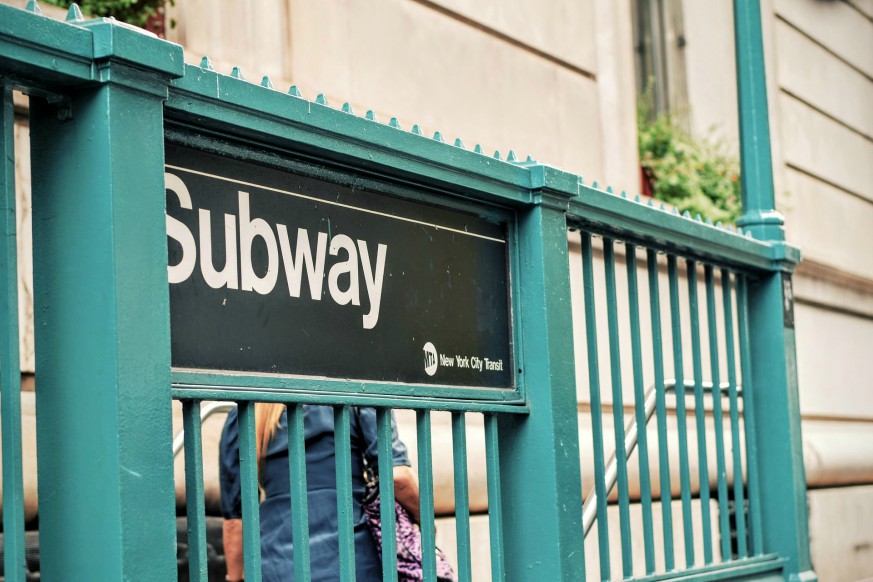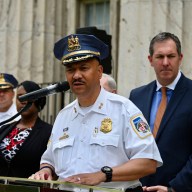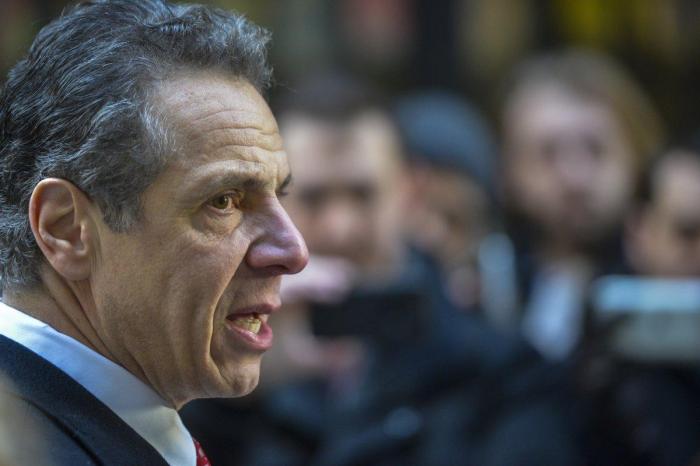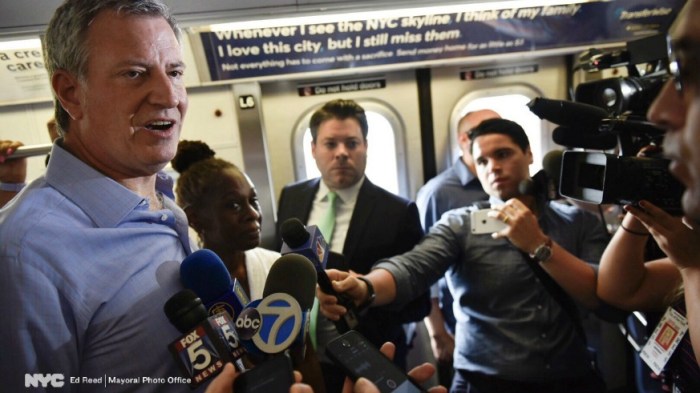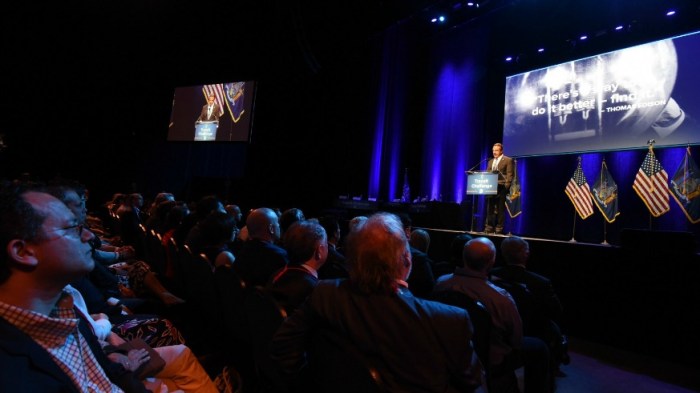Some New York City politicians and transit advocates are speaking their minds about the $168 billion 2019 budget that Gov. Andrew Cuomo and state lawmakers passed late Friday night.
The budget includes a $2.75 surcharge on for-hire vehicles, $2.50 for yellow cabs and $0.75 pooled rides below 96th Street in Manhattan to offset congestion and create what Cuomo called a “long-term funding stream” for the city’s mass transit system. It also funds half of the $836 million MTA Subway Action Plan and will expand the city’s Bus Camera program by adding at least 50 new traffic-monitoring cameras to enforce bus lane violations.
However, the budget will not see the adoption of the Cuomo-appointed Fix NYC panel’s recommendations on a congestion pricing plan for Manhattan motorists, which many advocate were hoping to be a primary funder for the extensive repairs needed on the city’s aged transit system.
“Our transit system is on life support. Fixing our transit system should have been Albany’s first priority this year; unfortunately, the final budget does not offer a credible plan to modernize the MTA, nor provide a sufficient revenue stream to make it possible,” Transportation Alternatives, The Straphangers Campaign, Riders Alliance and StreetsPAC said in a joint statement. “If the governor is serious about alleviating the crisis, he must ensure that the initial steps laid out in this budget — for-hire vehicle surcharges, bus lane expansion and enforcement — be the catalyst for meaningful reform.”
The New York League of Conservation Voters said the FHV surcharge is a “good first step toward reducing automobile emissions and raising new revenues for the MTA, but we need real congestion pricing, which means at a minimum using a portion of the new revenues to begin the construction of cordon infrastructure and address transit deserts.”
Brooklyn Assemblymember Robert Carroll said the new FHV surcharges will generate a dedicated $400 million annually for the MTA capital plan, but it is “a small step” toward the agency’s needs and does not reduce congestion or lessen carbon emissions.
The surcharge is “going to devastate an entire workforce and industry. Yellow cabs have already contributed close to $1 billion since 2009,” New York Taxi Workers Alliance Executive Director Bhairavi Desai told the New York Post. “Once again Albany is letting these Wall Street-bankrolled companies write the laws while we bury drivers dead from financial devastation.”
Mayor Bill de Blasio’s Press Secretary Eric Phillips said in a statement that the budget “appears to respond to the mayor’s demands on behalf of the city’s straphangers,” The New York Times reported. “There are no excuses left for the governor to hide behind. He must do his job and fix the subways.”
In the wake of the deaths of two young children who were fatally struck by a motorist at a Park Slope intersection last month, Families for Safe Streets and Transportation Alternatives decried the budget’s inaction regarding speed safety cameras.
“Tools like speed safety cameras are proven to reduce speeding by over 60 percent and reduce pedestrian injuries by over 20 percent. Currently, New York City is only allowed to operate this life-saving technology in 140 school zones, leaving hundreds of thousands of children unprotected,” the advocates said. “Gov. Cuomo and leaders in the Assembly and Senate need to ensure that the expansion of speed safety cameras is a top priority in the months ahead —the lives and safety of our children are at stake.”

